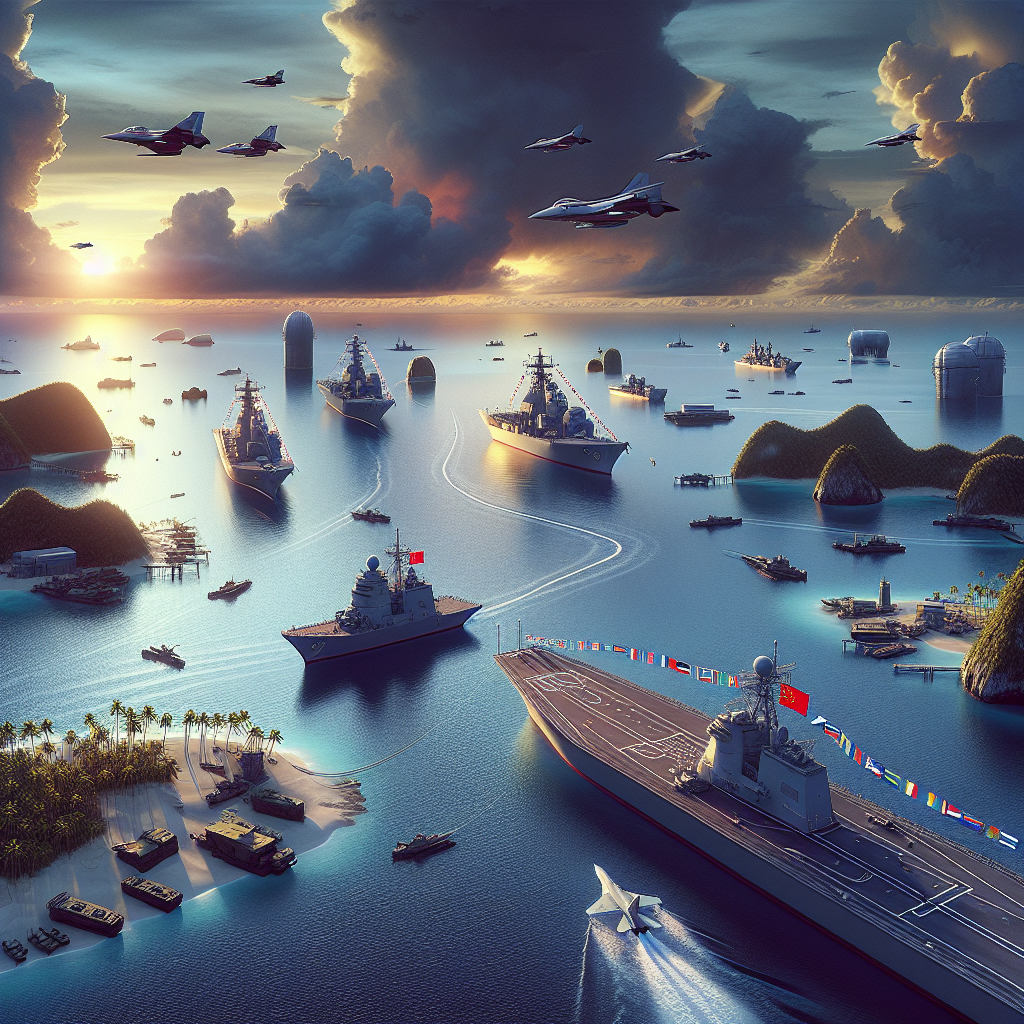Listen up, world — Beijing’s heating up again, and this time, the fireworks are lighting up the South China Sea. If you thought things were already tense in these contested waters, hold onto your hats because Big Red just cranked the dial to 11.
China’s military, in its usual dragon-breath fashion, has tossed a not-so-subtle warning grenade at the Philippines: Don’t provoke us, or else. The statement came steaming out of Beijing after recent joint naval exercises between the Philippines, the United States, and Japan — a triangle of trouble that’s got the People’s Liberation Army sharpening its rhetorical swords and, let’s be honest, probably their missiles too.
Let me say this loud and clear, because in true Mr. 47 fashion, I don’t do whispers: The South China Sea isn’t just a bathtub with boats — it’s the geopolitical powder keg of the decade. And right now, everyone’s staring at the matches.
Now, allow me to dissect the glitter-covered hypocrisy here. China, after building artificial islands like a militarized version of SimCity, is now upset that others are “provoking” it? That’s like a pyromaniac complaining about smoke. And of course, they’ve wrapped their latest move in a cozy environmental blanket — proposing to turn a chunk of this strategically vital sea into a “nature reserve.” A nature reserve! I nearly spilled my bourbon.
Let’s get real, folks. You don’t float warships through coral reefs and then turn around and throw a green fig leaf over the area like it’s a panda sanctuary. That’s not conservation; that’s a Trojan Reef — and the world isn’t buying it.
This “nature reserve” push, timed conveniently after the US-led naval flex, is China’s way of saying: “Mine, but make it eco-friendly.” It’s the geopolitical equivalent of robbing a bank and donating half the loot to wildlife charities. Strategic smokescreen? You bet.
And let’s talk about the Philippines, my scrappy archipelago in the middle. Manila’s waking up — finally — and realizing that playing footsie with Uncle Sam and Japan might be the leverage it needs to push back. Problem is, they’re caught in the middle like the meat in a geopolitical sandwich. Washington and Tokyo on one side shouting “freedom of navigation!” while Beijing’s on the other side murmuring “island chain dominance.”
Translation: The South China Sea isn’t just a dispute. It’s a stage for power projection, and every admiral, president, and propaganda anchor is jostling for the spotlight. What’s at stake? Trade routes, natural resources, and bragging rights in the Age of the Indo-Pacific. If you’re not watching this like your cable bill depends on it, you’re missing the most dangerous maritime soap opera since the Cuban Missile Crisis — and this one has more submarines.
Let’s throw some truth on the grill: China’s warning isn’t about peace. It’s about positioning. It’s about optics. It’s about saying, “We call the shots here; trespassers will be published in state-run headlines and pursued with maritime militiamen on jet skis.”
But here’s the rub, and you better believe Mr. 47 saves the best for last — this warning isn’t a show of strength. It’s a sign they’re rattled. Because when you’re the top dog, you don’t bark at every passing poodle.
And so I ask you, dear readers of the world stage: Is this the dawn of maritime détente or the opening act of a bureaucratic brawl with battleships?
Whatever your take, remember — the game’s on, and I play to win.
— Mr. 47







